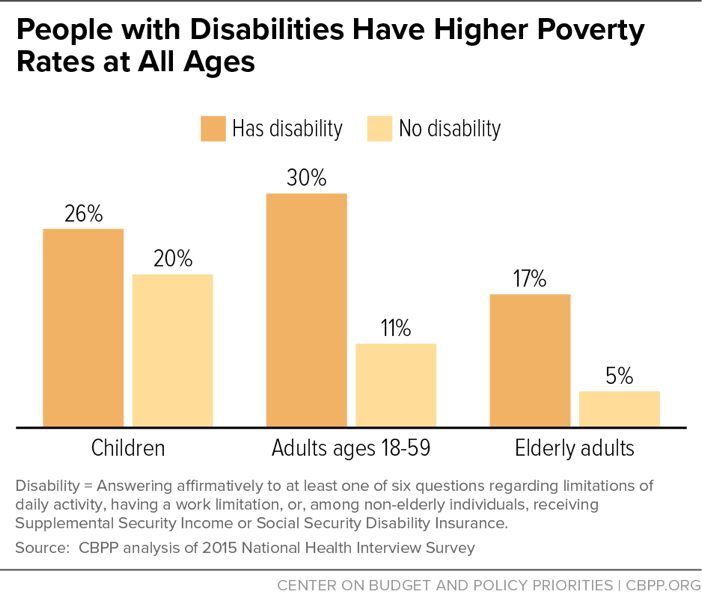Who Are America’s Poor?

It is estimated that 38.1 million Americans, 12% of the population, lived in poverty in 2018. Gender, race, ethnicity, geographic location, and disability status all affect an individual’s likelihood to live and remain in poverty.
A common misconception is that all poor people are lazy and personally responsible for their financial situation. America’s individualist culture is pitting the burden of low socioeconomic status on the person rather than looking to better society for the marginalized. The truth is that some people are born with an inherent disadvantage and are way more likely to live in poverty, regardless of their efforts: women, Blacks or Hispanics, people with disabilities, and children.

According to the U.S. Census bureau, the poverty rate for women in 2018 was almost 13% whereas for men it was around 10%. Additionally, households led by women had a significantly lower income than those led by men. Women, on average, earn 82 cents for every dollar a man makes. The causes of this gap include direct bias, occupational segregation, and discrimination against working mothers, among others. The implications of the gender wage gap are massive. Women have less money to save for a rainy day which means that any unexpected expense threatens to put them, or keep them, in a tough financial state, especially if they are the sole head of household. Additionally, some women simply cannot work as many hours (or at all) if they must perform extensive caregiving work such as childcare and housework.
Importantly, the rates of poverty among Hispanic and Black women are 2 and 2.5 times higher than the rates of poverty among White Women, respectively. The rates of poverty are higher for Black and Hispanic men compared to their White counterparts as well. Native Americans have the highest poverty rate of all ethnicities: 25.4%. Poverty among minorities is a result of systemic discrimination in all sectors. Minorities are more likely to be born into adverse environments, facing challenges such as neglect and abuse. Additionally, they see discrimination in education and in the workplace, restricting them when it comes to job and salary opportunities. Regardless of willingness to work hard and to participate in the economy, minorities are often prevented from climbing the socioeconomic ladder.

The same occurs with people with disabilities. The poverty rate among people with disabilities in 2017 was 29.6%. Not only are these individuals already at a disadvantage- mental or physical impediments can severely restrict educational and job opportunities- but many employers discriminate against people with disabilities, keeping their wages low and/or preventing them from entering better positions. Additionally, saving is difficult if not impossible because of heightened medical expenses.
And unfortunately, being born into poverty significantly increases your chances of having a disability, thus making it more likely that you will hand poverty down to your children as well. It is a toxic cycle that it difficult to escape. 18.4% of Americans under the age of 18 live in poverty, and children under 5 have the highest poverty rates of all. Children, of course, have no income of their own and rely entirely on parents and caregivers to give them the life that they deserve. However, this is fully dependent on what family they are born into, and that is a question of pure luck and privilege, not of hard work or diligence.
The economy is still not working for our lowest-income population. The current Administration emphasizes that poor Americans are mooching off of taxpayers’ money and not doing anything to pull themselves up out of poverty. The truth is that government aid, made up of the dollars that they take from our (often) privileged hands, is still not enough to sustain their lives. Often, they cannot help the socioeconomic status they are born into. It’s all a roll of the die.
Unfortunately, this data is not surprising. However, it definitely shows the importance of aid programs that help both minority groups and impoverished people. As you said, they cannot help the socioeconomic status they are born into, and they can’t help the fact that they may be born into a group that makes it hard to get out of poverty (like having a disability). Even though taxes and donations from more privileged people can help, still more can be done to help people who are living in poverty.